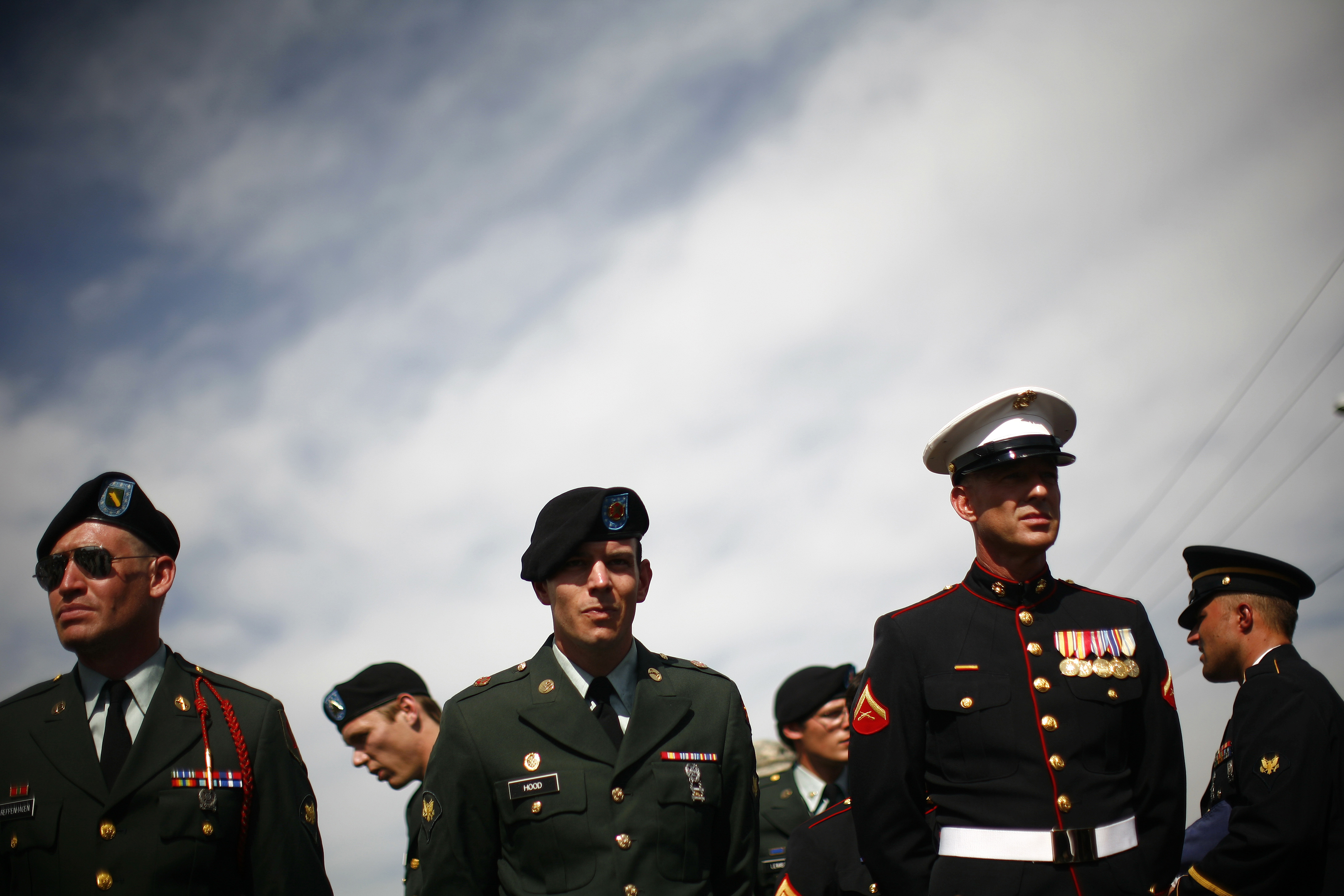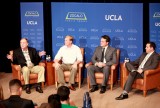
Over 2 million veterans of the Iraq and Afghanistan wars are returning home from combat, and while we often read and talk about how the experience of war has changed them both physically and mentally, we don’t discuss how they’re changing the rest of us. Could they reinvigorate our economy—if we started hiring them? Has our healthcare system innovated to heal their devastating injuries? And, what happens when a husband, wife, mother, or father rejoins the family unit? Zócalo and UCLA present a half-day forum to explore how veterans have affected American life today—and what lies ahead for all of us as we transform into a nation at peace in the world.
Featured Speaker:
The Honorable Tulsi Gabbard, Representative from Hawaii
Congresswoman Gabbard is an Iraq combat veteran and a captain in the Hawaii National Guard.
Why Don’t We Hire More Veterans?
Moderated by Tony Perry, San Diego Bureau Chief, Los Angeles Times
Although they have specialized training, work experience under pressure, and the imprimatur of a highly regarded national institution, veterans are struggling even more than most Americans to find jobs. Over 800,000 veterans are jobless nationwide, and the unemployment rate of post-9/11 veterans is well above that of the rest of the country. Many organizations have formed with the express mission of getting veterans jobs—through entrepreneurship, training, partnerships with businesses, and new job creation—but we don’t know what strategies work best. Can the military do more to prepare veterans to enter the job market? What do companies, big and small, owe those who served? Green Vets Los Angeles founder Jim Cragg, Institute for Veterans and Military Families director of new initiatives Raymond Toenniessen, and Archi’s Acres and Veterans Sustainable Agriculture Training CEO Colin Archipley visit Zócalo to discuss why so many veterans can’t find employment, and what we can do about it.
How Are The Wars Changing Medicine?
Moderated by Kelly Kennedy, Health Reporter, USA Today
Doctors have always had a hard time keeping up with the injuries warfare invents. At the same time war, for all its horrors, has always been a spur to medical advances, from the invention of the ligature during the 1537 siege of Turin to the creation of the triage unit during World War I. The modern soldier can expect to face an ever greater variety of dangers and attendant harms: IEDs, exploding bullets, chemical weapons, even atomic weapons. All these create signature injuries requiring innovative medicine. The wars in Iraq and Afghanistan, while primitive in weaponry, are no exception in having an effect on medicine. But what is that effect? And what does it mean for U.S. veterans? Operation Mend co-director Kodi Azari, UCLA Brain Injury Research Center director David Hovda, and VA Greater Los Angeles Healthcare System chief of staff Dean Norman visit Zócalo to explore how our wars are changing the medical care we all get.
How Do Wars Affect Families?
Moderated by Patricia Leigh Brown, Reporter, The New York Times
The most straightforward fear of a family in wartime is the death of a loved one. But the effects of war on family are hardly limited to potential loss of life. During war, parents leave children, children leave parents, and spouses leave spouses. After war, families must adjust to other potential realities both dramatic and mundane: deaths, permanent injuries, and mental health issues—or new habits, new furniture, new chore lists. Stable, two-parent households are correlated strongly with positive life outcomes for children, while war destabilizes and separates. How do families weather the separations and reunions of wartime? How do veterans readjust to their roles as spouses, parents, or sons and daughters? Psychiatrist and Project FOCUS director Patricia Lester, Soldiers Project founder Judith Broder, and Blue Star Families deputy director of membership Megan Glynn, the 2011 Air Force Spouse of the Year, visit Zócalo to discuss the effect of our conflicts abroad on our families at home.
*Photo courtesy of REUTERS/Eric Thayer.
The Takeaway
Our Transformational Veterans
America Changed Their Lives. Now They’ll Be Changing America.
The 2 million veterans who are returning home from Iraq and Afghanistan have had their lives changed by war. As they come home, they have the potential to change the …






